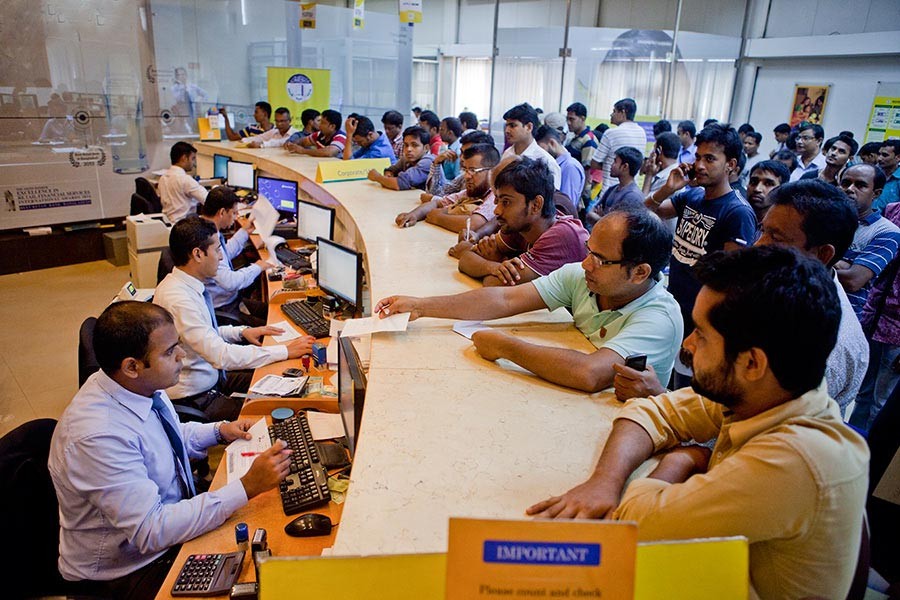Problems in the banking sector will have significant adverse impact in the country’s domestic businesses, according to the majority of the businessmen and entrepreneurs surveyed by a local think-tank.
Many of them also voiced their concern over ‘further deteriorating situation in money laundering through various channels’.
Overall, some 47 per cent of the country’s businessmen and entrepreneurs participated in the survey are optimistic that the business environment would improve in 2019.
These findings were disclosed by the Centre for Policy Dialogue (CPD) on Wednesday morning at a press briefing organised to formally unveil the Global Competitiveness Report 2019 - the flagship publication of the World Economic Forum (WEF).
Every year the CPD conducts a comprehensive survey under Bangladesh Business Environment Study (BBES). The annual exercise reflects ‘perception of the entrepreneurs and businessmen of the country regarding contemporary issues and concerns’ related to the country's economy.
This year’s BBES findings also showed that businesses are deprived of getting benefits of key fast-track infrastructure projects due to slow progress in implementation.
Though they are positive on progress of Padma Bridge and Dhaka Metro Rail, most of them found the progress of Ruppur Nuclear Power Plant, Payra Seaport and Matarbari Coal-fired Power Plant disappointing.
‘Newly established institutions have yet to generate expected level of services for the private sector,’ said the survey finding report.
Though perception about Bangladesh Investment Development Authority (BIDA)’s One Stop Service (OSS) has improved, it may ‘not provide effective services in due course of time.’
Moreover, one public Special Economic Zone (SEZ) would not be ready with full facility as per timeline, according to majority of the entrepreneurs surveyed.
“Both inflation and lending rates are found to be costlier in doing business for respondents’ companies during H1 of FY2019 compared to that in FY2018,” said the report.
Again, around half of the businessmen participated in the survey were apprehensive about government’s possible initiative to undertake reform measures on different issues. According to them, new government would find it difficult to undertake reform measures on fiscal policy, banking sector, civil service and human development.


